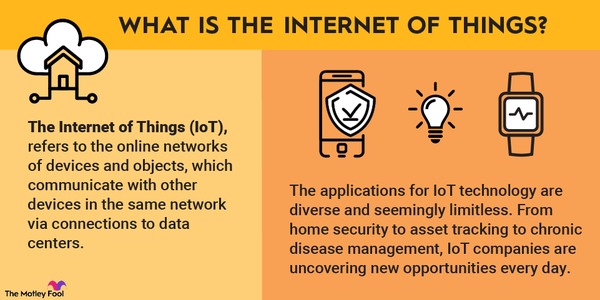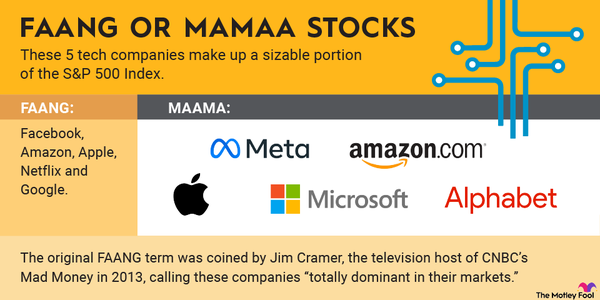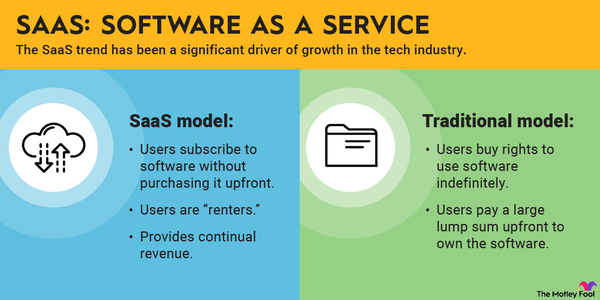The gig economy is rapidly creating jobs while providing easier access to services for businesses and consumers. If you've hailed a ride on Uber (UBER 0.86%), ordered dinner on DoorDash (NYSE:DASH), or commissioned a portrait of your cat on Fiverr (FVRR 0.88%) (that's normal, right?), you've participated in the gig economy.
If you're interested in investing in the gig economy, here are five stocks to consider.

List of gig economy stocks
Top gig economy stocks
| Company | Market Capitalization | Description |
|---|---|---|
| Uber (NYSE:UBER) | $150.5 billion | A company offering rides, restaurant delivery, grocery delivery, and other services. |
| Lyft (NASDAQ:LYFT) | $4.6 billion | A company offering rides, bike-sharing, scooter-sharing, and food delivery. |
| DoorDash (NYSE:DASH) | $51.5 billion | A company providing restaurant and grocery delivery. |
| Airbnb (NASDAQ:ABNB) | $72.7 billion | A hospitality business offering vacation rentals. |
| Fiverr (NYSE:FVRR) | $838 million | A freelance marketplace for professionals. |
1. Uber
1. Uber
Uber specializes in getting things from point A to point B -- people, food, and household items. Drivers use their own vehicles to deliver people, restaurant orders, packages, or grocery items to their destinations.
Like most other gig economy stocks, Uber's value is its network, which consists of drivers, riders, restaurants, and stores. Uber easily connects drivers to gigs and restaurants to diners, earning it a commission. Uber distributes most of its customer payments to drivers, restaurants, and stores, keeping some for itself.
Uber is constantly under regulatory pressure with some governments looking to define drivers as employees instead of freelancers -- a challenge faced throughout the industry. Maintaining freelancer status means Uber doesn't have to provide health insurance or other benefits, and it can avoid managing payroll across its territories.
The pandemic hit Uber's ride-sharing business hard, as people stopped traveling and nightlife shut down in many cities. Its UberEats business, however, made up for the decline, and the shift to more meal delivery may be permanent even as consumers begin to feel comfortable going out again.
More recently it's pushed its Uber One subscription, which provides discounts on rides and deliveries. A growing subscriber base locks customers into the Uber ecosystem, fending off competition. It's also found growth on the business-to-business side with advertising, now a meaningful source of revenue for the company.
2. Lyft
2. Lyft
Lyft (LYFT -0.07%) is the second-largest ride-sharing business in the U.S. It operates under the same business model as Uber, but Lyft focuses on getting people to their destinations. It also operates a bike and scooter share.
Lyft operates in the same fashion as Uber and other gig economy businesses. It provides a network of riders and drivers and makes it easy for them to connect with each other. In exchange for the service, it takes a commission on every ride.
The pandemic was especially tough on Lyft. The number of active riders fell almost 60% at the start of the pandemic and that number didn't fully recover until mid-2023. Lyft divested or discontinued its non-core businesses in 2021 and 2022, including its autonomous vehicle research and car rentals for drivers. It's now seeing steady growth in riders and increased engagement.
3. DoorDash
3. DoorDash
DoorDash is the leading food delivery business in the U.S. It connects restaurants to customers and delivery drivers, enabling restaurants to offer delivery service easily and find additional customers looking for a meal. DoorDash has expanded from restaurants into grocery, alcohol, and convenience item delivery as well, capitalizing on its network of drivers.
The pandemic was a boon to DoorDash's business as more consumers looked to the convenience of restaurant delivery for dinner at a time when many options were closed to indoor diners. The business expanded quickly from 2020 through 2022, reaching new verticals while growing engagement. In 2023, management focused on improving unit economics, producing strong adjusted earnings before interest, taxes, depreciation, and amortization (EBITDA) growth.
4. Airbnb
4. Airbnb
Airbnb (ABNB 3.76%) gives homeowners a chance to earn extra income by listing their home or a room as a short-term rental. It's quickly grown in popularity since an Airbnb can provide greater value for the customer than a typical hotel stay. Airbnb also allows hosts to offer "experiences" to travelers such as a cooking class or a personalized tour. Airbnb collects a service fee for each booking made through its platform.
Like other travel-related businesses, Airbnb suffered mightily during the depths of the pandemic. It adapted the best it could, with some hosts offering work from home office space while others positioned their rentals as a COVID-19-safe alternative to a busy hotel. Airbnb recovered quickly, faster than other travel operators, but growth started slowing significantly in 2024. Still Airbnb's network of hosts, unique properties, and travelers makes it a tough competitor.
Related investing topics
5. Fiverr
5. Fiverr
Fiverr is a freelance marketplace where individuals and businesses can hire someone to design their website, revamp their logo, produce a video, or perform numerous other tasks. Job postings start for as little as $5 (hence the name). Fiverr takes a commission on each sale for freelancers on the marketplace. It also offers several subscription options for both buyers and sellers on the platform.
Freelancers can make a full-time income by selling their services on Fiverr. Jobs might start at $5, but Fiverr has become a respected marketplace, and sellers can charge a premium for premium services.
Fiverr's growth has slowed in recent years. Active customers declined from mid-2021 to mid-2024. That said, existing customers are spending much more, so total revenue continues to grow. As a platform business with minimal marginal costs, its EBITDA has seen substantial growth.

























